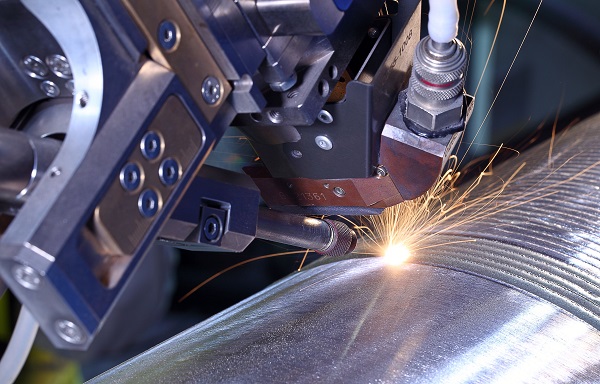Business News
Development of Low-power and High-Performing Industrial Lasers Gaining Traction

The use of laser technology in various industries is gaining popularity in major application areas such as marking, drilling, cutting, welding materials. Industrial lasers are increasing being used in processing manufacturing materials in a number of verticals, including aeronautics and marine, construction, automotive, electronics, and food and textile. The demand for industrial lasers rides on the back of the need for cutting manufacturing materials, with precision and accuracy in these industry verticals.
The development of advanced sensor technology has increased the performance of industrial lasers, has enhanced its reliability in metalworking operations, and boosted its flexibility. Among all types of lasers, fiber lasers have added a new dimension to laser cutting operations as they are typically equipped with nanosensors and calls for a low maintenance.
The rising number of welding and heating operations in the automotive and electronics manufacturing is spurring the demand for laser technology. The demand is also expected to get a sustained push from the need for precise cutting technology for aluminum and steel sheets. The advent of less-power intensive industrial lasers bodes well for the overall market. Witnessing a bright future ahead, the global industrial laser market is projected to expand at a CAGR of 4.6% from 2017 to 2026, estimates Transparency Market Research.
Which industry verticals are likely to provide lucrative prospects in the industrial laser market?
The key industry verticals where industrial lasers are used comprise defense, medical, aeronautics and marine, automotive, construction, electronics, utility, and food and textile. Among these, the oil and gas and medical industries are anticipated to witness strikingly attractive demand for industrial lasers. Stringent regulation to contain emissions in oil and gas exploration and production activities in several parts of the globe is a noteworthy factor likely to bolster the uptake. The substantially rising demand for sensing technology in a variety of medical devices also puts the demand for industrial lasers at the forefront.
Want to know the obstructions to your company’s growth in future? Request a brochure
The extensive use of LIDAR sensors and GPS receivers in automotive, manufacturing, and aerospace sectors is also driving the demand for industrial lasers. These industries are also expected to provide vast promising prospects to manufacturers of industrial lasers. Meanwhile, the consumer electronics industry is expected to witness a robust demand for industrial lasers over the forecast period. The end-use vertical is expected to rise at a prominent pace over the assessment period.
Which technology or product type of industrial lasers is estimated to witness extensive adoption?
The key product types of industrial lasers are CO2 lasers, fiber lasers, and solid state lasers. Of these, there is widespread demand for fiber lasers in various industrial verticals. The popularity of this technology in the market can be accounted to several benefits. The high performance parameters such as fast operational speed and the low cost of maintenance add to the attractive demand for fiber lasers. Add to this, the flexibility of automation features which seeks to increase the convenience of machine operations. These factors account for a burgeoning demand for fiber lasers in process manufacturing applications in the automotive industry for welding airbag initiators and diesel injectors.
In recent years, the market is witnessing attractive demand for compact and easy to use industrial laser and has therefor witnessed technologically-advanced product launches. Laser Photonics, a prominent developer of next generation industrial lasers, has in January, 2018 launched the first fully integrated, industrial-grade fiber lasers, the Titan FXi, for cutting operations. The fiber lasers is characterized by low cost of operation and less consumption of power. Such developments bode well for the market and is expected raise the ante in the industrial laser market in the coming years.











